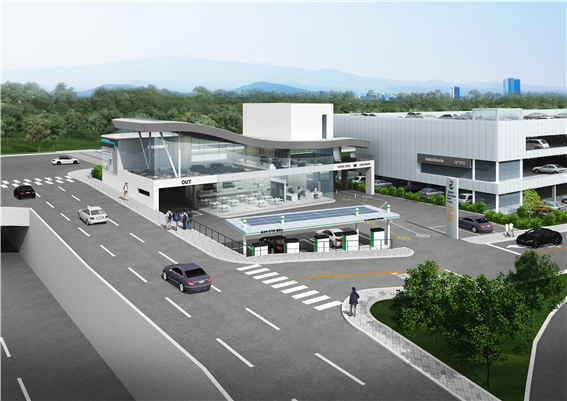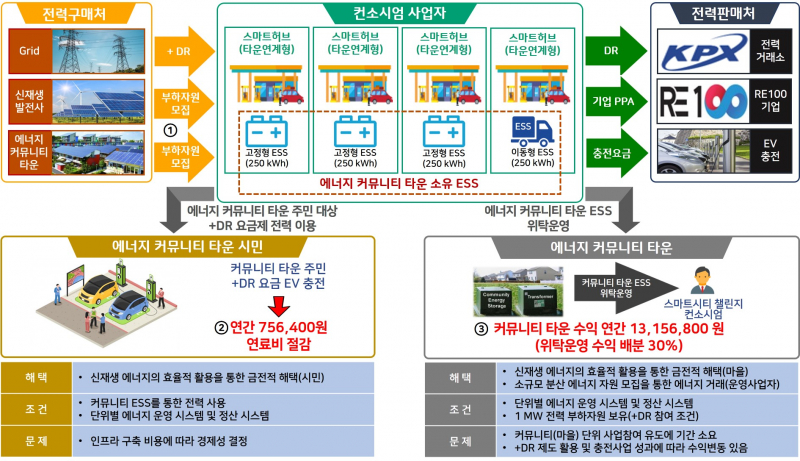– MOLIT approves the 'Smart City Regulatory Sandbox' agenda for Jeju Island –
– Energy convergence and innovation services are possible regardless of existing regulations through demonstration special cases –
The private sector in Jeju Island can directly share renewable energy and trade freely between individuals.
According to the Jeju Special Self-Governing Province, the Ministry of Land, Infrastructure, and Transport held the 22th National Smart City Committee on the 14nd and submitted the 'Smart Community Town and Smart Hub-based Energy Sharing and Transaction Service' task as a smart city regulatory sandbox. Finally approved as a box item.
❍ As a result, the main content of the Jeju Smart City Challenge main project (Ministry of Land, Infrastructure, and Transport contest) selected in March, the energy sharing service project promotion (exemption for demonstration) became possible in Jeju.
❍ The energy sharing service project will be carried out by separately forming the Replus Consortium (Replus Co., Ltd., Metis Information Co., Ltd., and Jinwoo Soft Innovation Co., Ltd.) from the Smart City Challenge headquarters.
❍ As a special demonstration, it is possible to implement innovative services that combine renewable energy sharing and trading and green mobility in Jeju, regardless of existing regulations, during the four-year trial period (4 years can be extended).
Through this regulatory sandbox, we have demonstrated energy sharing and transaction services centered on energy community town-type smart hubs, reuse of electric vehicle waste batteries, mobile energy storage system (ESS) utilization services, and 100% renewable energy circulation (RE100) utilization services. plan to do
❍ The project group is paying attention to energy trading services that enable neighbors or businesses to trade new and renewable energy without going through electricity sales operators in the energy community that directly produces energy.
❍ Electric vehicle and personal mobility charging service using fixed and mobile energy storage system (ESS) is emerging as an alternative to solve the recently emerging problem of power generation output limitation.
❍ In addition, the energy community town-type smart hub purchases unused renewable energy at a low price, stores it in an energy storage system (ESS), and supplies electricity to villagers at a low unit price to reduce energy costs.
Meanwhile, Jeju Special Self-Governing Province plans to promote the project in earnest as additional business operators are recruited for the Smart City Challenge main project and an agreement with a consortium is signed.
❍ Starting with the opening of the mobility operation platform 'GreeGo' in September, services will be provided sequentially, such as smart hub-based mobility operation, e-9DA platform-based open platform, community town-based energy sharing and trading service, and establishment of Smart Plus Hub near Jeju Airport.
Hyung-seok Yoon, Director of the Future Strategy Department, said, “Through this Smart City Challenge project, we have opened a way to contribute to carbon neutrality by realizing inter-personal electricity transaction and electricity transaction rate system and reducing the burden of electric vehicle charging costs for residents.” “Regulatory sandbox demonstration In addition, we will do everything we can to ensure that Jeju can be reborn as a zero-carbon island by securing measures to increase the use of new and renewable energy.”
[Regulatory Sandbox Final Approved Smart Energy Community Town Type Service Structure]

[Aerial view of Smart Plus Hub near Jeju Airport during Jeju Smart City Challenge main project (example)]




